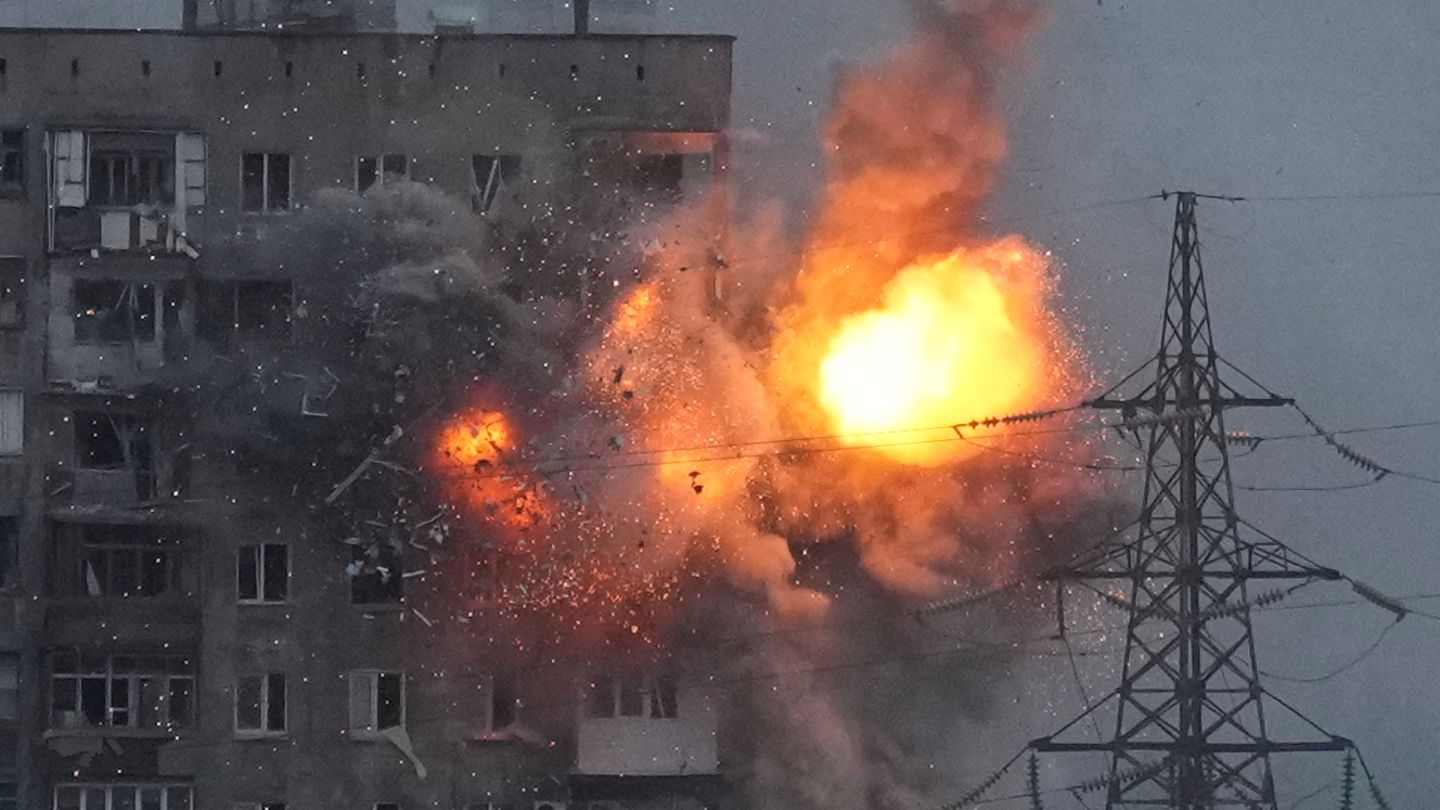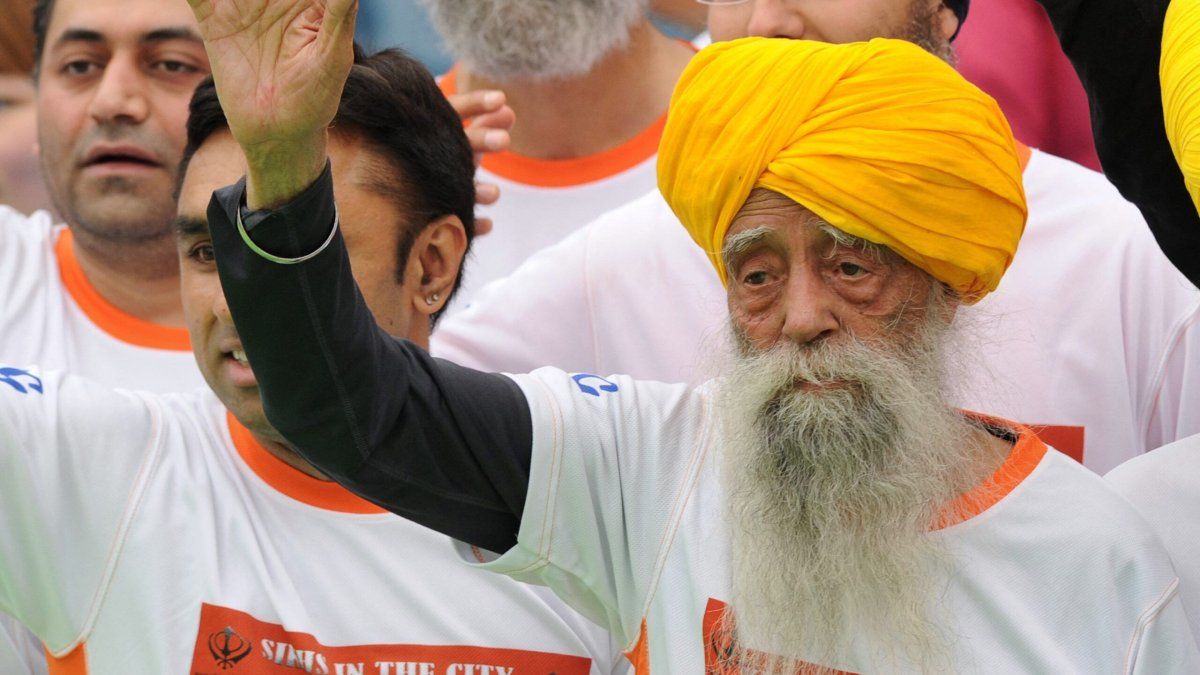opinion
The Ukraine war revealed a basic pacifist attitude in Germany. But we can’t afford that right now – and there is only one party that has recognized this.
Approval for supporting Ukraine militarily is declining noticeably in Germany. That occupies a . While at the beginning of April 55 percent of Germans were still in favor of arms deliveries to Ukraine, the figure is now only 46 percent. There may be various reasons. On the one hand, of course, there is the fear of finding yourself in the middle of the war. On the other hand, it seems unwise these days to give up the last working weapons. A third point might be pacifism, a school of thought that rejects any form of war, rearmament and military training. Instead of tank howitzers and war planes, opponents of the war should be persuaded to surrender by means of civil disobedience and social defence. With a view to Ukraine, this is an almost utopian approach – which, however, is not engraved in the DNA of any political party as much as the Greens.
According to their traditional understanding, their followers form the ultimate peace party. Its roots flow into the peace and environmental movements of the 1970s. The groups came together out of fear of nuclear armament and death from a corresponding catastrophe. There were protests against NATO’s nuclear armament, against nuclear power plants, or against both. The “struggle” was more limited to demonstrations, heated debates and knitting – unthinkable today in view of autocratic and determined dictators who seem only too ready to push the red button. At the end of the 1990s, then Foreign Minister Joschka Fischer had to put up with an injured eardrum because he opposed his own party’s school of thought. For the war effort of the German army in Kosovo, he harvested a paint bag that hit his ear unfortunate. At that time, Fischer was still one of the few who had turned away from pacifism.
The green turnaround
It’s different today, but the about-face by the Greens is no less astonishing. Marieluise Beck, a member of the Bundestag, recently demanded in “Spiegel”: “Ukraine should ideally be so well equipped that it can close its airspace. We have to prevent this country from becoming a second Syria.” According to Beck, a “totalitarian regime” must “if necessary be defeated militarily.” Top representatives of their party are also demanding military aid for Ukraine, putting their coalition partner, the SPD, under pressure. Ironically, the party whose chairman in the Europe Committee of the Bundestag, Anton Hofreiter, was never with the federal government himself, would have refused the service earlier and would have dutifully started today. Instead of having the hesitant and slow-moving moralizers in the government who want to prevent war at all costs, they dare to express themselves so openly. One reason: the lack of government responsibility.
And yet the Greens are right. Denying Ukraine any pleas or urges for arms could have given Russian troops a lightning victory. Economic sanctions are not enough in the short term, as the endless list of war crimes and civilian suffering shows. Displaying pacifism these days is the closest thing to an ostrich tactic: burying your head in the sand, pretending that things aren’t that bad just because the Russian bombs aren’t your existence yet to rubble is devastating. Because this war is not just about individual fates that may seem far away to many Germans. Ukraine is currently fighting a battle for values such as democracy, freedom, sovereignty and human rights. Values that we also share here. Western reluctance would therefore only be a tacit admission to Putin that he is trampling on state sovereignty and committing more war crimes. The Ukrainian troops would hardly have expelled their Russian occupiers with civil disobedience and knitting for peace.
Sometimes peace has to be fought for first
These days, pacifism has become a luxury that can only be afforded by those who are not affected themselves. And at the same time one has to ask how long many pacifists could maintain their basic attitude if the first bombs were to fall all around them. In this case, sitting still and knitting colorful socks would probably be overwhelmed by the instinct to flee. You don’t have to and shouldn’t like wars. But in some cases, military means are the last resort. Vitali Klitschko put it aptly in a guest article for the “Frankfurter Allgemeine Zeitung”: “The absolute good thing is not peace, but freedom and justice. And to defend them you have to fight.”
Maybe it’s time for a new kind of pacifism. Or have we simply misunderstood pacifism? When the Greens were founded in the 1980s, leading representatives spoke out primarily against retrofitting NATO. However, taking a stand against nuclear weapons did not mean rejecting all forms of violence. Incidentally, the term pacifism comes from Latin and means “peace-loving”. And sometimes, as Klitschko writes, for the sake of peace, you first have to throw pacifism overboard in order to be able to revive it.
Source: Stern
David William is a talented author who has made a name for himself in the world of writing. He is a professional author who writes on a wide range of topics, from general interest to opinion news. David is currently working as a writer at 24 hours worlds where he brings his unique perspective and in-depth research to his articles, making them both informative and engaging.




